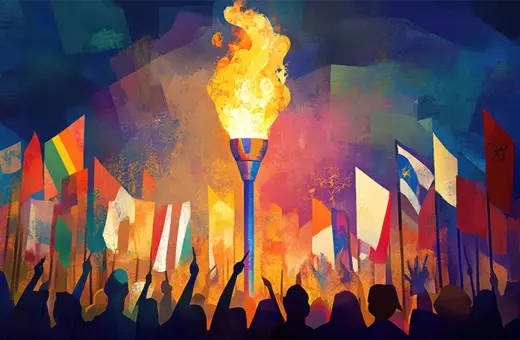Shame today has been dangerously trivialised. It has become a weapon of private war – a constant and cowardly emission of spite and bile through the air-waves. Children, teenagers and even adults are now ready to globally expose the physical foibles and embarrassments of their temporary enemies. They are also ready to reveal to all and sundry their chance unfortunate remarks. These things can lead to long term despair and suicide. They are literally murderous.
Equally, shame is attached to remarks held to reveal positions about which we are supposed to feel guilt – remarks deemed elitist, sexist, racist, homophobic, islamophobic and so forth. These are seen as abusive in relations to various notions of assumed human right, but the focus on outward shame suggests that rights themselves are now reduced to the correct categorisations and formalisations in mere words. In this way the prime public sin is becoming one of usage rather than deed. Once again this attachment of severe blame to passing or chance remarks scan be extremely violent – careers and relationships are sometimes ruined as a result. Just as Twitter has reduced reflection to instant emoting, so our judgement of people is being diverted from viewing their records in the round towards castigation of momentary lapses. This seems like a reversion to morality and legality as the breaking of taboo – though in a manner far cruder than the way in which taboo anciently worked.
But ironically, this double abuse of shaming is a mark of our shamelessness. Many people pursue lives wholly without honour in the greedy pursuit of wealth and fame and as result are celebrated instead of shamed – enjoying the plaudits of the quasi-honouring which is fashion.
So we need both more real shaming and none of the fake variety. Real shaming is the reverse face of honouring and we require a culture that honours the true pursuit of human flourishing for oneself and others. The pursuit of the good and true and beautiful. If there were such honouring, as with most human societies hitherto, then people would wish to be recognised in this way because to pursue instead false goals would risk public shaming and then, no doubt, a loss of even worldly goods in consequence.
Understood in this fashion, shame is not, as so often thought, to be strongly distinguished from guilt. Shame is rather about those public actions, including ones lacking in an appropriate style and timing, concerning which we should indeed, in various ways and in various degrees feel guilty. This is again the reverse face of the fact that honour is but the outward aspect of virtue, its showing forth, without which it cannot fully be at all. The good must be seen to be done as well as be done, just because the ethical is relational. Thus to be secretly virtuous is never enough – our deeds must be recognised in order to produce fruit, and if they are misrecognised, and innocence is read as guilt, then it is always important, even for our inner being and self-regard, that that be corrected. Similarly shame must be aligned with real guilt, if there is to be a valid shaming.
___
"Morality has been reduced to the offending of a social conversational norm. People now feel shame more than guilt "
___





















Join the conversation